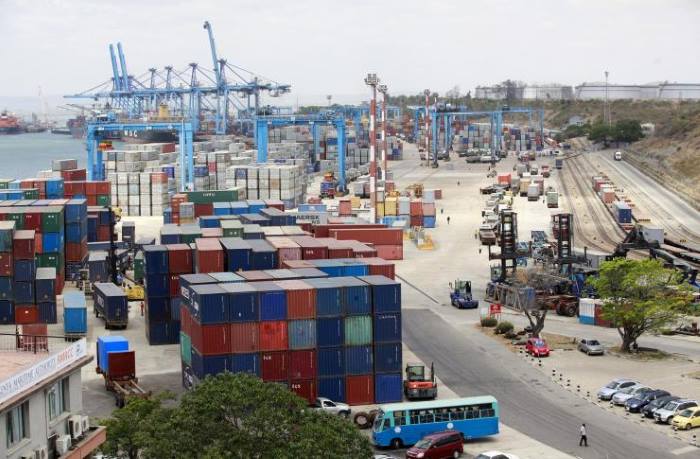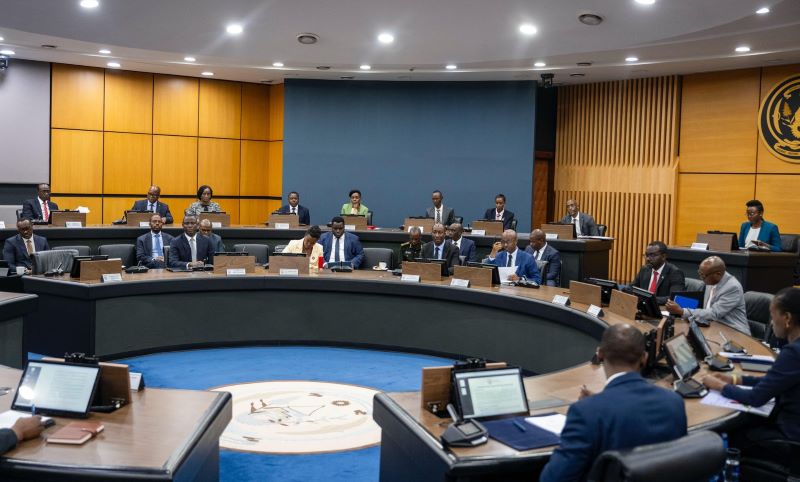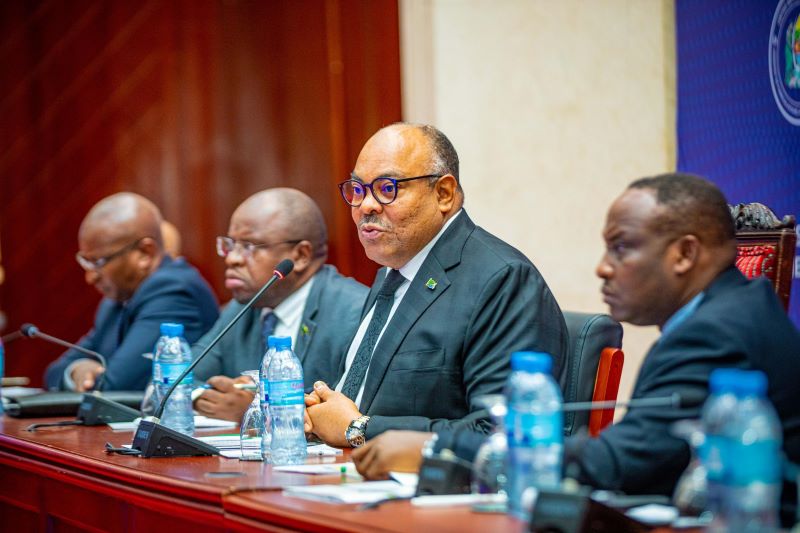Maritime authority seeks public input on new maritime safety and efficiency regulations

One of the most major reforms planned is the Cabotage Regulations 2024, which will prohibit foreign ships from doing local trade in Kenyan seas unless they are licensed under these regulations.
The Kenya Maritime Authority (KMA) has urged the general public and maritime stakeholders to submit feedback on new draft laws aimed at improving maritime safety and efficiency.
The two most important regulations are the Verified Gross Mass Regulations and the Cabotage Regulations 2024.
More To Read
- Nairobi to host EU-backed regional Maritime Security Week
- Kenya battles Nigeria, South Africa to keep IMO seat as Africa’s voice in global shipping
- Transporters issue 7-day ultimatum over empty container backlog
- Weak regulation, environmental crisis pose threat to Africa’s maritime growth - KMA
- Court rejects bid to block Joho's merchant shipping regulations
- Kenya Maritime Authority, Kenya Plant Health Inspectorate Service clash over container inspection levies
This appeal for public input is consistent with the Kenyan Constitution of 2010, which emphasises transparency and public participation in legislative procedures.
The Kansas Museum of Art announced, "The general public is hereby invited to make comments on the draft laws using the comments template available on the KMA website and submit for consideration on or before September 20, 2024."
One of the most major reforms planned is the Cabotage Regulations 2024, which will prohibit foreign ships from doing local trade in Kenyan seas unless they are licensed under these regulations.
Kenyan ships, on the other hand, will be able to trade locally if they are registered or licensed under the act.
The word cabotage areas refers to the Kenyan seas, the exclusive economic zone, and the continental shelf. Cabotage is essentially the practice of reserving domestic maritime traffic for national carriers to support the local shipping sector.
If implemented, these restrictions will apply to Kenyan ships, foreign ships subject to any treaty or arrangement with a foreign government, and foreign ships that are licensed or exempt from licensing requirements.
The objectives of these regulations are to promote a viable shipping industry that contributes to the national economy, foster long-term growth in the Kenyan shipping sector, maximise the use of ships licensed or registered in Kenya for local trade, and improve the efficiency and dependability of Kenyan shipping as part of the national transportation system.
Under the new laws, persons licensed to conduct local trade within the cabotage regions must submit a report of trade activities to the authority after the licence period or the fiscal year, whichever comes first.
According to the regulations, before issuing a licence, the Director General must conduct a thorough survey and inspection to ensure that the ship meets all regulatory criteria.
Another significant focus is the Verified Gross Mass of a Packed Container Regulation 2024, which aims to improve cargo transportation safety and efficiency.
These regulations require port facility operators, ship agents, and ship masters to ensure that an export container packed with cargo is not loaded onto a ship unless the shipper has a valid gross mass certificate.
These restrictions apply to all containers according to the International Convention for Safe Containers 1972 that are stowed on any ship.
They also apply to all inbound containers whose gross bulk has been validated in the country of loading or by previous agreement between the shipper and the carrier.
However, these regulations do not apply to cargo goods tendered by a shipper to the master for loading into a container already on board the ship or offshore containers.
Shippers must obtain a signed Gross Mass Certificate for a packed container from a verifier using either Method I or Method II of verification, which must then be submitted to a port facility operator, ship agent, or ship master before the container is loaded onto a ship.
The KMA emphasises the necessity of public input in revising these laws to achieve the greatest levels of marine safety and efficiency.
Top Stories Today











































